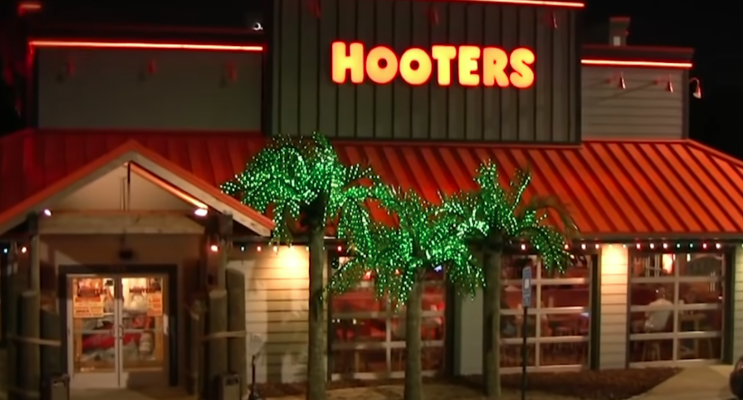Hooters, the iconic restaurant chain known for its wings and distinctive service model, is reportedly preparing to file for bankruptcy in the coming months. According to sources cited by Bloomberg and The Gateway Pundit, financial troubles have mounted for the chain, pushing it toward potential restructuring or closure of multiple locations.
The restaurant, once a staple of American casual dining, has struggled in recent years as consumer preferences shift and economic pressures intensify. Rising labor costs, inflation, and declining foot traffic have placed a significant burden on the company’s operations. Despite efforts to adapt, including an attempt to appeal to a broader customer base, Hooters has failed to reverse its financial downturn.

A major factor contributing to Hooters’ decline is the economic environment under the current administration. Small and mid-sized businesses across the country have been suffering under the weight of rising costs, excessive regulations, and a broader decline in discretionary spending. Many conservative analysts argue that policies promoting higher wages, stricter workplace mandates, and aggressive taxation have contributed to making it increasingly difficult for businesses like Hooters to stay afloat.
Additionally, the restaurant industry has seen a cultural shift that has impacted Hooters’ brand. The push for politically correct dining experiences and changing attitudes toward traditional branding have left Hooters in a precarious position. While the company has attempted to modernize, including introducing different menu options and remodeling locations, it has faced backlash from both sides—alienating long-time customers while failing to attract a new audience.

According to Zero Hedge, the company has been in talks with advisors to prepare for bankruptcy proceedings, which may come as soon as the next few months. While no official filing has yet been made, sources indicate that a Chapter 11 filing is the most likely outcome, allowing the company to restructure its debts while continuing operations at select locations. However, it remains unclear how many locations would be affected or if Hooters will be able to recover from this financial setback.
The downturn of Hooters is emblematic of a broader trend in the restaurant industry. Many legacy chains are struggling to adapt to an economic landscape that has been significantly altered by inflation and government policies that favor large corporate entities over independent and mid-sized businesses. As small businesses close at record rates, it is becoming increasingly apparent that economic mismanagement is taking a serious toll.
Critics of the current administration have pointed to these business failures as evidence of failed economic policies. The focus on pushing ideological narratives over pragmatic business solutions has had real-world consequences, particularly for industries that once thrived on traditional American values of entrepreneurship and free-market success.
Hooters’ troubles also reflect the broader shift in cultural attitudes that have devalued traditional American brands in favor of more sanitized corporate identities. As businesses face pressure to conform to progressive social expectations, many are left struggling to maintain their core identity while appeasing a rapidly changing consumer base.
Despite these challenges, some conservative business experts believe that companies like Hooters could still have a future if they remain true to their brand and reject the pressures of modern political correctness. The demand for classic American dining experiences has not disappeared, but rather has been suppressed by a corporate and media culture that discourages businesses from embracing their original identities.
Ultimately, the potential bankruptcy of Hooters is more than just a financial story—it is a cautionary tale of what happens when economic mismanagement, cultural shifts, and misguided policy decisions converge. Whether Hooters will be able to salvage its operations remains to be seen, but its struggles should serve as a wake-up call for businesses and policymakers alike.






